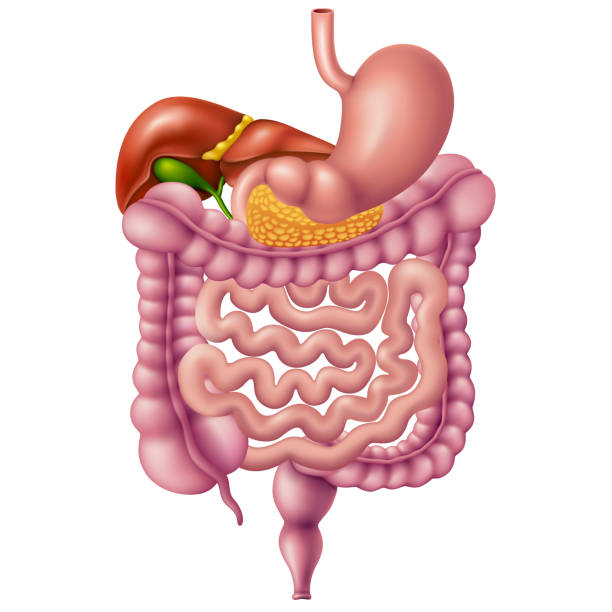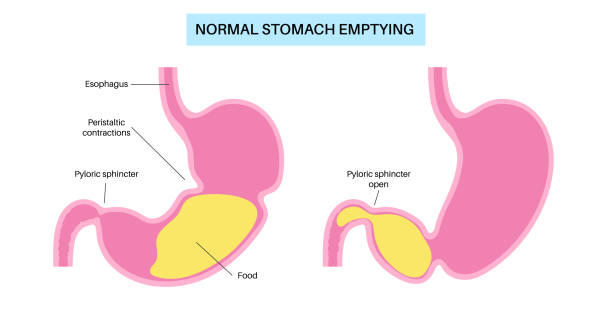The relationship between your gut and overall health is more interconnected than you might think. The gut microbiota or the community of microorganisms living in your digestive tract plays an important role in maintaining health particular in the aspect of metabolism. One key player in this intricate system is glucagon-like peptide-1 (GLP-1), a hormone that has gained a lot of attention for its potential benefits in treating type 2 diabetes and obesity. But how does GLP-1 impact gut health and motility?

GLP-1 and Gut Microbiota
Research has shown that the administration of GLP-1 receptor agonists (GLP-1RAs) can alter the composition of gut bacteria. In one particular study mice that were administered with liraglutide led to increased levels of caseinolytic protease B, a component of Escherichia coli (E. coli), and higher levels of norepinephrine in the cecum.
Norepinephrine was observed to pass into the intestinal lumen in vitro, suggesting a direct effect on the gut environment. The researchers used c-Fos staining to indicate that GLP-1RAs activate the sympathetic nervous system in the intestines. While an increase in E. coli levels didn’t affect healthy mice, those with colitis showed bacterial translocation and reduced expression of genes responsible for maintaining the integrity of the gut lining. Now there’s a growing number of studies that have identified GLP-1’s role in Alzheimer’s and Parkinson’s disease.
The Gut-Brain Connection
The gut is not an isolated organ but part of a complex communication network involving the brain, pancreas, liver, muscle tissue, and fat tissue. GLP-1 is a significant hormone in this system and it plays crucial roles in these regulatory processes. It helps control blood sugar by stimulating insulin secretion from the pancreas and helps with weight loss by promoting feelings of satiety.
Scientists at the Cedars-Sinai Diabetes and Obesity Research Institute are investigating this gut-brain interaction to understand how GLP-1 can be leveraged to treat type 2 diabetes and obesity and Non-Alcoholic Fatty Liver Disease. By comparing brain responses in lean and obese patients, the researchers aim to uncover why these differences exist and how they might be targeted for obesity treatments.
GLP-1 and Gastric Functions
GLP-1 also has a profound effect on how your stomach functions. After you eat, the hormone is released to act as an incretin, stimulating insulin secretion and slowing down gastric emptying.
Studies have shown that GLP-1 and its analogs, like exendin-4 slow down gastric emptying. This effect helps manage blood sugar levels after meals and is beneficial for those with diabetes. However, the impact on gastric emptying can vary depending on the type of GLP-1 drug used. Long-acting versions or prolonged use of short-acting versions can lead to a reduction in this effect due to tachyphylaxis, wherein the body becomes less responsive to the drug over time.
GLP-1 and Gastrointestinal Motility
Beyond the stomach, GLP-1 significantly influences overall gastrointestinal (GI) motility which is the movement of food and fluids in the digestive tract. The hormone (or the drug) has been shown to suppress this activity. GLP-1 inhibits the migrating motor complex (MMC), a pattern of electromechanical activity observed during fasting in the GI tract, to move residual food and bacteria out of the stomach.

Research involving healthy individuals and patients with irritable bowel syndrome (IBS) has demonstrated that GLP-1 reduces the frequency and intensity of MMCs. In turn this can help manage GI symptoms and improve your overall gut health.
GLP-1 and Its Impact on Metabolic Health
The role of GLP-1 extends beyond the gut. It is integral to the management of one’s metabolic health, particularly in conditions like type 2 diabetes and obesity. By influencing insulin secretion and gastric motility, it can help regulate blood sugar levels and control weight.
In type 2 diabetes, GLP-1 agonists help stimulate insulin release which results in lower blood sugar levels. These medications also promote weight loss by slowing gastric emptying and increasing feelings of fullness. This dual action makes GLP-1 drugs highly effective for managing both diabetes and obesity.